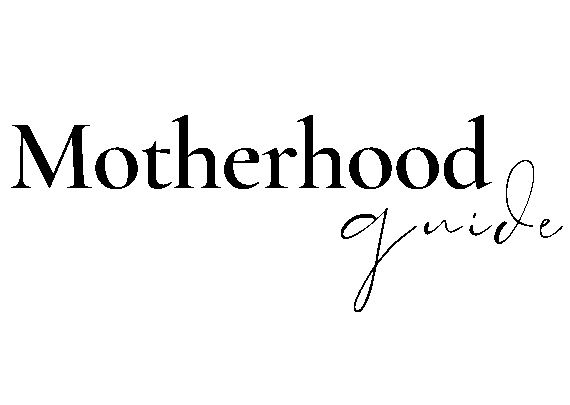Depleted Mother Syndrome is not a medical diagnosis you’ll find in textbooks, but it’s a term used to describe the profound burnout that comes from the constant demands of modern motherhood. For the modern mom, the weight of this responsibility often feels heavier than it should be.
As a single mother to a 17-year-old daughter, I’ve been through it all: the endless juggle of deadlines, school drop-offs, the rare moments of self-care (if any), and the constant drive to provide the best possible life for my child. One day, as I walked home from work, I suddenly found myself struggling to even stand straight. My thoughts were foggy, and I couldn’t even manage to send a simple “help me” text to a friend. I sat on the sidewalk, trying to make sense of what was happening to me. In that moment, I was terrified. After some effort, I pulled myself together, caught the first bus, and went straight to my family doctor.
“I can’t be sick,” I told him. He looked at me and asked calmly, “Tell me why.” I explained the reality I was facing, the pressure of being the only provider, the sole caretaker, and the weight of it all crushing me from every direction. He listened attentively, then ran a few tests before gently explaining that long-term stress had taken its toll on my body.
My central nervous system had gone into overdrive, dealing with the constant, relentless stress of trying to juggle everything. My body was ready to flee from a danger that didn’t exist. But, in reality, this state of heightened long term stress was causing damage rather than helping me.
“You have to stop exhausting yourself, or your brain or your heart will force you to stop,” he said. His prescription wasn’t just a handful of supplements like magnesium, vitamin B, valerian root, it was a wake-up call. I needed to change my lifestyle, starting with the basics:
- Prioritise sleep (must be asleep between midnight and 5 a.m.).
- Stay hydrated (at least 2 liters of good-quality water a day).
- Control stress, and if it’s caused by people, distance myself from them.
- Ensure I’m getting enough calories throughout the day.
- Avoid alcohol when feeling down, lost, or overwhelmed.
No matter how much I wanted to keep pushing through for the sake of my daughter, I had to acknowledge that I couldn’t do it all. Taking care of myself became my priority, it was essential for my survival and not for being the best mom I could be, but being, in general.
I was in a way lucky, that I’ve got immediate help, but for far too many of us, this Depleted Mother Syndrome goes unnoticed and unaddressed. So, how can you recognise when this becomes more than just a phase and starts affecting your mental and physical health? And more importantly, how can you begin to rebuild yourself, despite the pressures that society places on mothers to “do it all”?
What is Depleted Mother Syndrome?
Depleted Mother Syndrome is not a medical diagnosis you’ll find in textbooks, but it’s a term used to describe the profound burnout that comes from the constant demands of modern motherhood. It’s more than just being tired or stressed; it’s a condition where exhaustion, emotional depletion, and feelings of inadequacy overwhelm a mother’s daily life. This syndrome strikes at the very core of a mother’s ability to function at her best, and, for many women, it becomes a slow and invisible spiral.
In its most severe form, Depleted Mother Syndrome makes the simplest of tasks, grocery shopping, attending parent-teacher meetings, or even talking with friends, feel like monumental challenges. It leads to a sense of being stretched too thin and, often, a deep sense of guilt, because we are told to be everything to everyone.
A Shocking Reality of Overwhelmed Moms
The statistics around the mental health of mothers, particularly single mothers, are stark. A 2017 study published in JAMA Pediatrics revealed that 1 in 3 mothers report feeling “mentally exhausted,” with many facing stress levels on par with that of combat soldiers.
In a world where 24/7 connectivity blurs the boundaries between work and home life, the consequences of Depleted Mother Syndrome are becoming far too common. According to the American Psychological Association, 61% of mothers report feeling “overwhelmed” by their dual roles of caretaker and breadwinner. This strain doesn’t only affect emotional well-being but also physical health: mothers who work full-time experience higher levels of depression, anxiety, and sleep deprivation.
And if you’re a single mother, like I was, these numbers become even more grim. Research indicates that single mothers are four times more likely to experience burnout than their married counterparts. The constant emotional and physical toll of managing both the household and the family unit without support from a partner creates a unique, silent crisis.
single mothers are four times more likely to experience burnout than their married peers
Recognising the Signs of Depleted Mother Syndrome
So, how can you recognise when you’re struggling with Depleted Mother Syndrome? It’s not just about feeling tired. It’s about feeling emotionally drained to the point where nothing seems manageable. Here are some of the key signs to watch for:
- Chronic Fatigue: You’re tired all the time, even after a full night’s sleep. You might wake up exhausted or feel like you can’t ever catch up on rest.
- Inability to Prioritize: Simple tasks become overwhelming. There’s an inability to focus on what’s most important, leaving you constantly shifting between roles without ever feeling satisfied.
- Emotional Numbness: You feel detached, like you’re going through the motions of motherhood, but not truly feeling it.
- Guilt: You feel guilty no matter what you do. Guilt for not being there enough for your kids, guilt for needing time for yourself, guilt for focusing on your career. The guilt is suffocating.
- Health Issues: Physical ailments like headaches, back pain, insomnia, and digestive issues that seem to pop up frequently, often as a result of stress and overwork.
- Social Withdrawal: You avoid social engagements, and even simple conversations feel like a burden because your mental energy is already depleted.
Practical Tips to Manage Depleted Mother Syndrome
Let’s start with practical steps to recover from the Depleted Mother Syndrome.
1. Stop Trying to Be Perfect
We often feel as though we must do everything perfectly. The perfectly organised house. The flawless career performance. But here’s the thing: perfection doesn’t exist. Let go of that impossible standard and start prioritising the things that really matter.
It’s okay if you don’t get everything right. But at the end of the day, what matters more was that our kids know that we love them and I doing our best.
2. Set Boundaries
One of the most important things I had to learn as a single mom was how to set firm boundaries with both my work and my personal life. I couldn’t be available 24/7 for everyone. Whether it was at work or with friends, I had to start saying no in order to preserve my energy for what truly mattered.
It’s uncomfortable at first, especially for workaholic women like myself. But saying no is a necessary form of self-care.
3. Practice Some Simple Well-Being Activities
If you’re not taking care of yourself, you won’t be able to take care of anyone else. This means real self-care:
- Getting enough sleep;
- Eating good food;
- Finding at least 20 min for some pilates or yoga;
- Drinking enough water
I understand how hard is to find time for massages or spa, so I’d call it optional, but the above is your must!
4. Acknowledge the Moms Guilt but Don’t Let It Control You
As mothers, it’s almost like guilt is built into the job description, no matter which side of the fence we sit on. If we’re at home, we know we could be doing more. If we’re working moms, we guilt ourselves for not always being present for our families. But guilt doesn’t serve us. It doesn’t make us better moms, nor does it improve our efficiency at work. Instead, it only drains our energy and clouds our judgment.
It took me a long time to realise this, but guilt is often just a product of our high standards and our desire to do everything perfectly. For example, I used to feel guilty about not always being there for every single moment with my daughter. But when I took a step back, I realised that showing up for her emotionally, even when physically absent, was often just as important as being there every minute of the day.
Acknowledge the guilt, talk about it with your kids or your partner, recognize when you’re acting out of guilt, and then move past it. Focus on what you can do right now, exactly where you are.
Moms, It’s Okay to Feel Tired
If you’re reading this and feeling like the weight of motherhood is suffocating, take a breath. You’re not alone in this struggle. Many mothers, myself included, carry the burden of doing it all with little to no help. We do it because we love our children. We do it because we want the best for them. But we also deserve to be seen, to be heard, and to take care of ourselves.
It’s okay to be imperfect. It’s okay to feel tired. It’s okay to admit that you’re not always able to juggle every ball in the air. Your worth as a mother is not defined by how much you give or how much you do. It’s defined by your love and your resilience.
To the mothers who are stretched thin, whether you’re in an office, at home, or somewhere in between, take a moment to recognise that you’re not just getting through the day. You’re laying the groundwork for something bigger, even if it doesn’t feel that way right now. Your child is watching how you keep pushing, how you handle what comes at you, and how you keep showing up, no matter how exhausted you feel. This effort? It matters more than you think. You’re doing the hard, unseen work that shapes the future. And even on the toughest days, that’s enough.












